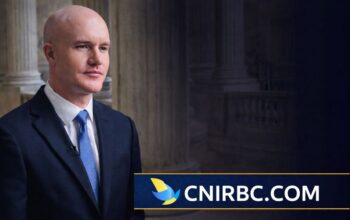Allegations of “Debanking” Stir Controversy in the Crypto and Tech Worlds
Accusations from venture capitalist Marc Andreessen have shaken the tech and cryptocurrency industries. During a podcast interview with Joe Rogan, Andreessen claimed that more than 30 founders of tech and crypto firms were covertly “debanked” during President Joe Biden’s administration. The term refers to individuals or companies losing access to banking services, often without explanation. Andreessen’s allegations have sparked a fierce debate, with high-profile figures weighing in.
Ray Dalio taught me that only a few key players shape the game at any given time, each with a limited set of moves. Marc Andreessen is one of those rare figures, listen to him explain how close we all were to America getting wiped out. 👀pic.twitter.com/2t9PcQhzUZ
— Tim (@NephiKindofGuy) November 27, 2024
“Operation Chokepoint 2.0” and the Crypto Crackdown
Andreessen likened the alleged debanking to the Obama-era “Operation Chokepoint,” which pressured banks to cut ties with industries deemed high-risk. According to Andreessen, the Biden administration has revived this approach, specifically targeting crypto startups seen as politically contentious.
The effects are dire, Andreessen explained, as debanked founders struggle to access basic financial services. Some have been forced to operate in cash or go from bank to bank in search of support, leading to operational chaos and reputational damage.
Crypto Leaders Confirm Claims
Elon Musk amplified Andreessen’s statements by sharing a podcast clip on X. In response, Coinbase CEO Brian Armstrong confirmed the allegations, accusing Senator Elizabeth Warren (D-Mass.) and SEC Chair Gary Gensler of orchestrating a hostile regulatory environment for crypto innovation.
Paul Grewal, Coinbase’s Chief Legal Officer, echoed the concerns, accusing regulators of weaponizing their authority to cripple the digital asset industry. Coinbase has since filed lawsuits against the SEC and FDIC, demanding transparency and accountability.
Can confirm this is true. It was one of the most unethical and un-American things that happened in the Biden administration, and my guess is we'll find Elizabeth Warren's fingerprints all over it (Biden himself was probably unaware).
We're still collecting documents via FOIA… https://t.co/2Rda7VU9MT
— Brian Armstrong (@brian_armstrong) November 27, 2024
The High Stakes of Debanking
Debanking disrupts business operations, particularly for startups. Without banking services, firms face challenges in managing funds, paying employees, and maintaining growth. Critics argue this practice fosters anti-competitive behavior, stifling innovation and reducing consumer choice in the tech sector. The reputational impact can further deter investors and partnerships, exacerbating financial woes.
Join the Conversation
Are these measures a necessary safeguard, or are regulators unfairly targeting the crypto industry? Share your thoughts below—how should financial oversight evolve to balance innovation and regulation?



